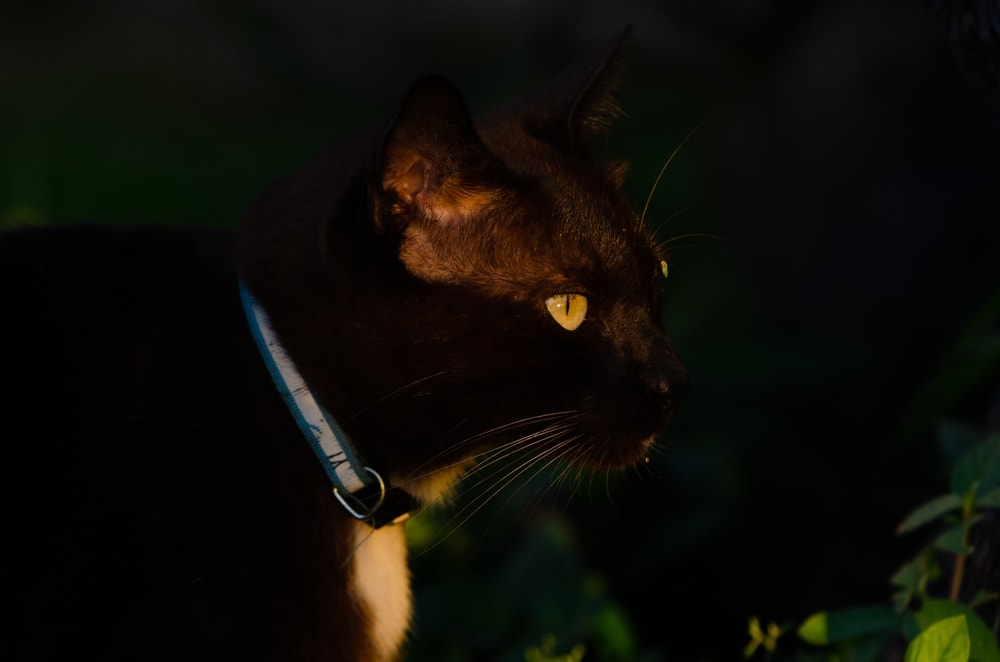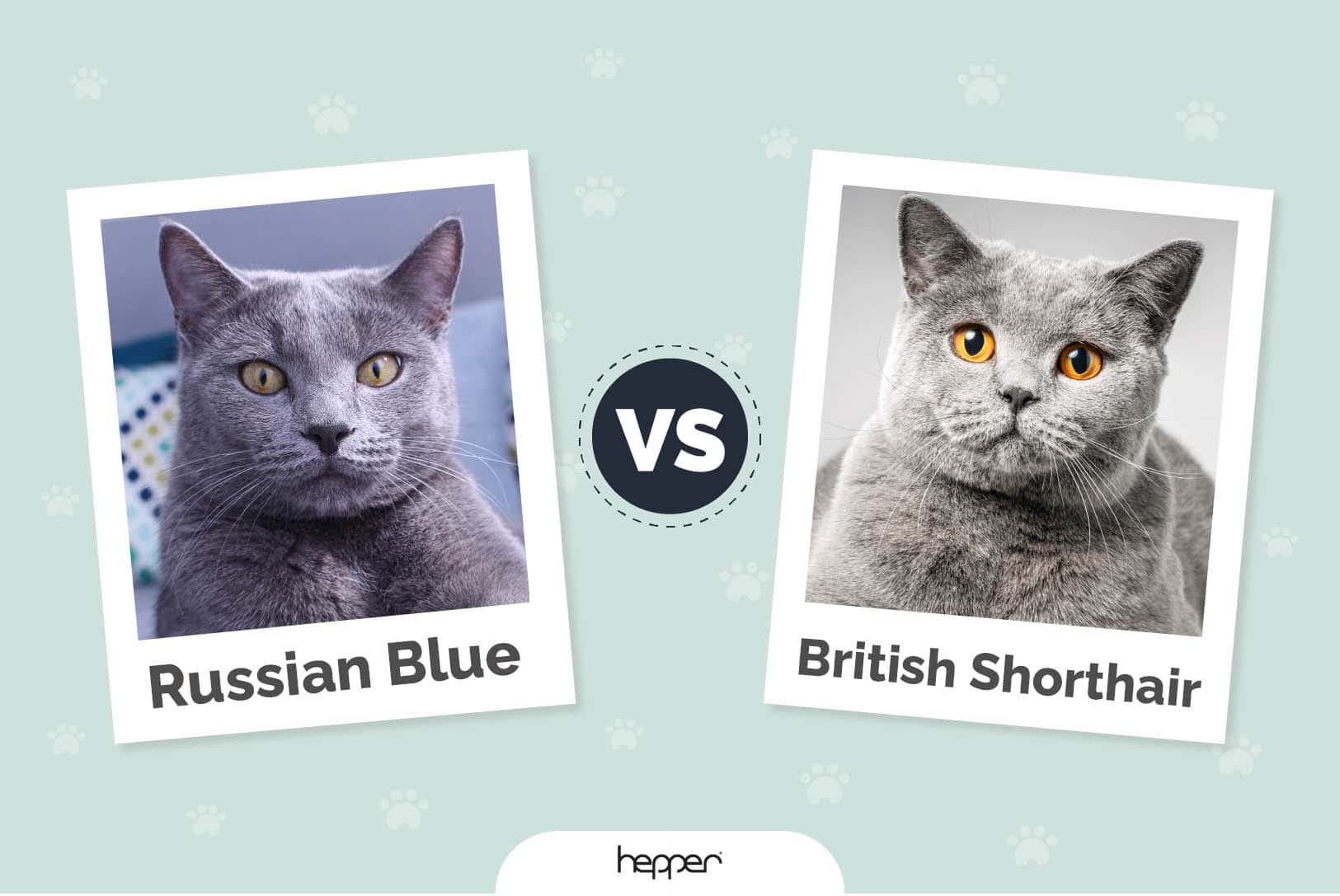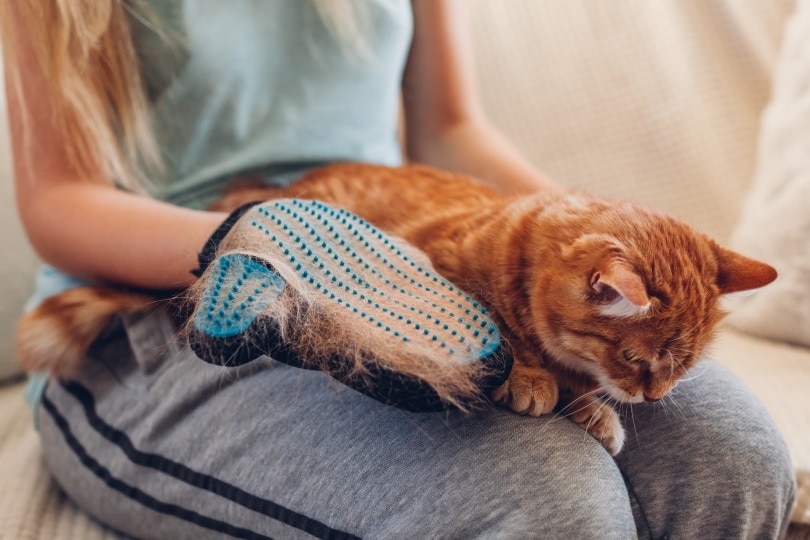Can Cats Eat Beans? Vet-Approved Nutrition Facts & FAQ
Updated on

Can cats eat beans? It depends on what kinds of beans we are talking about here! Green beans? Coffee beans? Cocoa beans? Here, we’re going to only discuss bean beans—legumes. Just know that coffee beans and cocoa beans are definitely out for cats! What about legumes, then? Can cats eat these beans?
Yes, cats can indeed eat beans, but it depends on the kind of bean and a few other factors that we take a closer look at. However, this is generally not recommended.
It’s always important to consult with your vet and research what your cat can and can’t eat, as the last thing you want is a sick cat. Please read on, as we discuss beans and cats in more detail. In this article, we are referring to the common bean, Phaseolus vulgaris.
 A Cat’s Diet
A Cat’s Diet
The most critical thing that you need to know about our beloved cats is that they are obligate carnivores. This means their diet is based on animal protein, and their bodies are not physically capable of adequately digesting or absorbing the proper nutrients from plants.
This also means that cats should never be forced into vegetarianism or veganism—this will make them very ill. Cats are natural hunters who typically eat their meals at dusk and dawn, which is when they usually hunt in the wild.
Generally, commercially made cat food contains all the right balance of meat, nutrients, vitamins, and minerals. You should avoid food that’s stuffed with fillers that don’t contribute any real benefit to your cat’s health or that is too rich in carbs. A balanced cat food should contain a high amount of quality animal protein, moderate amounts of fat, and low amounts of carbs.
Now that we know more about what cats eat, we’ll have a closer look at beans.
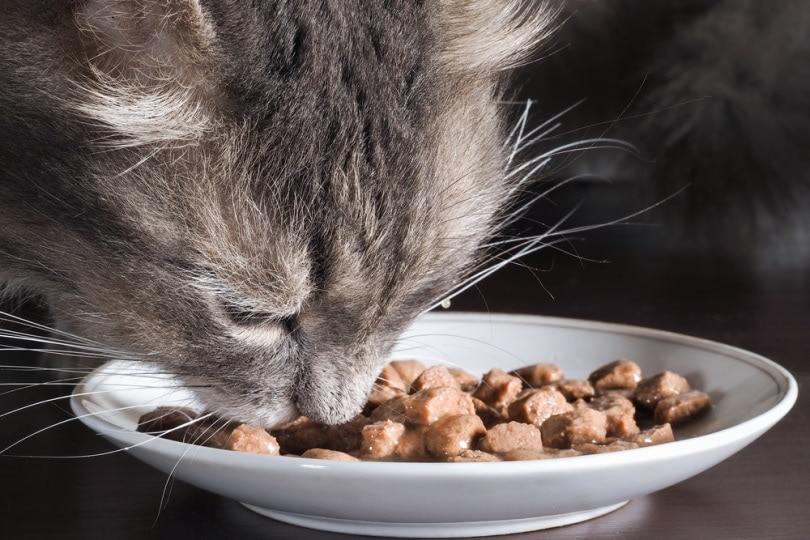
All About Beans
Beans are an important food source in many meals around the world. Beans are legumes but not every legume is a bean. Other legumes (that aren’t beans) are peanuts, lentils, and lupins. Legumes are plants that produce a pod that has seeds inside.
The most common (and popular) beans in North America are kidney, pinto, black, navy, and fava beans. They are high in fiber, protein, and a range of minerals and vitamins and low in fat and calories.
- They can help with weight loss.
- Beans can aid in heart health.
- Control of blood sugar levels.
However, there is a downside to beans.
Problems with Beans
Beans can cause excessive gas, leading to flatulence, bloating, and stomach pain. Some beans might also contain bacteria and substances, such as lectins, that are harmful to people if the beans aren’t cooked properly.
But what about cats? How do beans affect cats? Let’s look at the good, the bad, and the ugly.
The 5 Common Types of Beans
While beans are full of protein, it’s not the right kind of protein for cats, which need animal protein to thrive.
Some beans could cause stomach upset in cats, particularly baked and refried beans. You also need to avoid raw and seasoned beans. Raw beans have lectin and may be contaminated with bacteria that can also adversely affect your cat. Lectins can cause vomiting, diarrhea, and stomach pain if the beans, especially red kidney beans, are ingested raw or not cooked long enough.
Raw beans can also cause staph infections and E. coli, and unwashed beans can have other bacteria and chemicals on their surface.
Finally, if you want to give your cat a few beans, not only do they need to be washed, soaked for a recommended amount of time, and then cooked well, but they also shouldn’t have any seasonings of any kind — no salt, pepper, sugar, butter, garlic, onions, or oil.
1. Refried Beans
Refried beans are full of seasonings and fat, typically some kind of lard. They also usually have garlic and onions, which are particularly toxic to cats. So, your cat should never have refried beans.
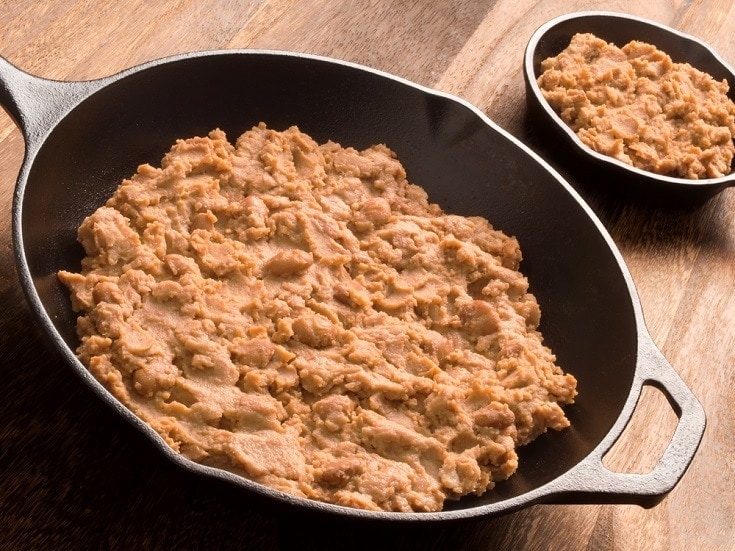
2. Baked Beans
Baked beans, like refried beans, tend to contain added ingredients that are best not to feed your cat. There can be onions, and there is always some kind of sweetener, both of which are considered toxic to cats. Too much sugar and fat in a cat’s food can lead to a stomach upset. So, do not give baked beans to your cat.
3. Kidney Beans
Kidney beans are acceptable for your cat as long as you wash them first, then soak and cook them afterward. Since they are commonly bought in cans, just be sure to rinse them thoroughly before cooking. Most beans are packed in salted water, and you’ll want to get rid of this excess salt.
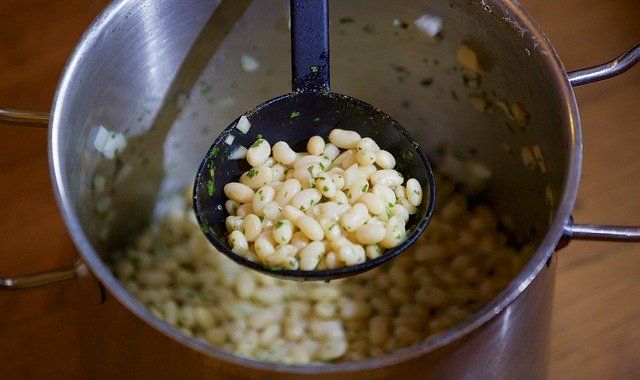
4. Black Beans
Washed, soaked, cooked, and unseasoned black beans won’t harm your cat if a very small amount is eaten as a rare treat. They just won’t benefit your cat either. If they are coming from a can (which isn’t recommended), be sure to rinse them off well before cooking.
5. Pinto Beans
Like black beans, pinto beans won’t harm your cat in small amounts. Cook them well and don’t season them.
 Can Cats Eat Beans?
Can Cats Eat Beans?
Yes, but it’s best if they don’t. Meat contains the right kind of protein and essential amino acids for cats, so while beans are high in protein, they won’t keep your cat in good health in the long run. If you insist on giving your cat beans (or perhaps it’s your cat that’s doing the insisting), it should only be very occasionally, not more than once a week, and no more than one or two beans at a time.
If your cat has digestive issues or a sensitive stomach, you should avoid beans altogether and consult your vet. They may only exacerbate the problem.
 Final Thoughts
Final Thoughts
So, the overall takeaway from all of this is you shouldn’t feed beans to your cats. But you don’t have to worry that much if your cat snatches one either, as long as they don’t contain any harmful or toxic ingredient. Avoid anything in a can, anything raw, and anything with seasonings.
If you have questions or are thinking of changing up your cat’s diet, speak to your vet first. And be sure to avoid any other beans — jelly beans certainly won’t do your cat any favors!
See also:
Featured Image Credit: Public Domain Pictures

 A Cat’s Diet
A Cat’s Diet
 Can Cats Eat Beans?
Can Cats Eat Beans?